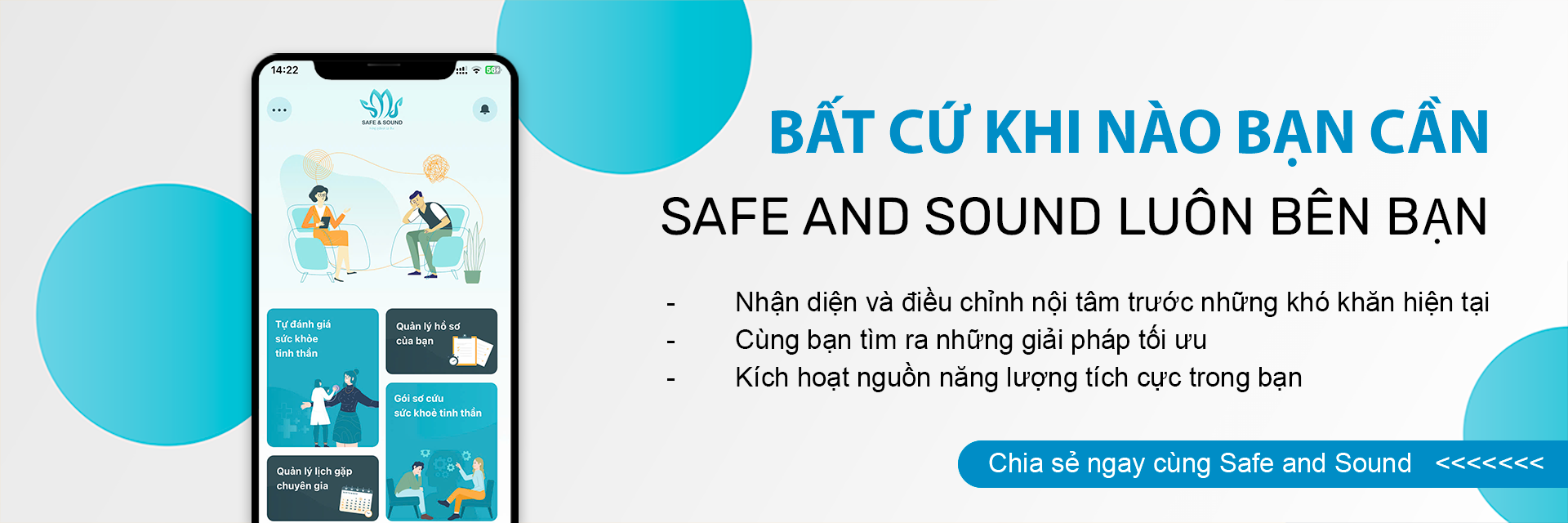Rebellious behavior in children: causes and effective coping strategies | Safe and Sound
Rebellion is a common behavior in children and adolescents, especially during puberty. According to psychologists, this period involves numerous psychological and physiological changes, making it difficult for children to control their emotions and behavior. This can lead to stress. Let’s explore the causes of rebellious behavior so we can respond effectively with Safe and Sound.
Nguyen Hoang Nguyen | Master’s Degree, Physician – Safe and Sound Mental Health Care Application
Institute of Applied Medical Technology
1. Causes of Rebellious Behavior
- Psychological Development
As children grow, they begin to develop their own personalities and a desire for self-expression. This is particularly evident during puberty when children seek independence and want to assert themselves. Efforts to separate from parental supervision may lead to rebellious behaviors, such as arguing back, refusing to follow rules, or acting stubbornly. Psychologists note that rebellion is a way for children to respond to their need for freedom, autonomy, and control over their own lives.

Adolescents want to assert their individuality
- Peer and Social Pressure
Children, especially teenagers, are strongly influenced by their social environment and peers. Pressure to fit in with friends or meet social expectations can trigger rebellious behavior. For example, a child may imitate negative behaviors from peers or challenge adults to appear strong and independent.
- Lack of Listening and Understanding from Parents
A common reason children become rebellious and struggle to manage emotions is the feeling that they are not being listened to or cannot share their feelings with parents. When children feel misunderstood, rebellion may be a way to attract attention. Psychologists point out that, in many cases, rebellious behavior reflects a lack of connection and communication within the family.
2. Effective Strategies to Handle Rebellious Children
To effectively manage rebellious behavior, the most important factor is maintaining patience and a positive attitude. Open and empathetic communication can reduce stress in parent-child relationships. Here are some practical strategies:
- Listen and Understand
One of the best ways to respond to rebellious children is to create a space where they can share and manage their emotions without fear of judgment. Listening sincerely and empathically helps children feel respected and accepted. Psychologists recommend that parents avoid immediately pointing out mistakes, and instead ask how the child feels and listen patiently.

Listening to children share their psychological challenges helps parents understand them better
- Guide Children to Manage Their Emotions
Many children act rebelliously because they lack emotional regulation skills. Parents can help children recognize their emotions and cope with stress in healthy ways, such as exercising, journaling, or engaging in creative activities. Learning to control emotions helps reduce stress and equips children to face challenging situations without losing control.
- Set Clear and Reasonable Boundaries
While listening and understanding are essential, parents also need to set clear and reasonable limits. Rebellious children often test boundaries, so establishing rules and maintaining consistency is important. However, rules should be set with mutual respect and should not be overly strict.
- Reduce Family Stress
Family stress can contribute to rebellious behavior. Psychologists suggest maintaining a comfortable and low-stress home environment to reduce pressure on children. This includes spending time together, engaging in shared activities, and encouraging open communication.
- Seek Support from Mental Health Professionals
If parents feel unable to manage their child’s emotions or rebellious behavior, seeking professional help is crucial. Psychologists can help families develop effective coping plans and provide tools and techniques for children to manage emotions and reduce stress.

When situations with children become unmanageable, consult a psychologist
Rebellious behavior is a natural part of growing up, but parents do not have to face it alone. By listening, understanding, and guiding children to manage their emotions, parents can help them navigate this challenging phase and strengthen the parent-child relationship. Support from mental health professionals also plays a key role in helping children develop emotional regulation skills and reduce daily stress.
Safe and Sound Clinic - Psychological Support and Family Health
With a team of experienced doctors and experts, Safe and Sound Clinic is a pioneer in providing comprehensive healthcare for you and your family, offering services that cover both medical and psychological care.
"Early Prevention - Timely Support - Long-Term Companion."
If you suspect or encounter any physical or mental health issues, please contact HOTLINE 0964 778 911 (Phone/Zalo, 24/7) for prompt assistance and support!

HOW TO MAKE AN APPOINTMENT
You can schedule an online or in-person consultation with our experts:
- At SnS Clinic - IMT Institute
- Or download and schedule a consultation through the Safe and Sound app to manage and track your appointments anytime, anywhere.
Safe and Sound (SnS) - a part of the Institute of Medical Technology (IMT).
See also:
- Identifying Behavioral Disorders in Adolescents
- Common Psychological Syndromes in Puberty




